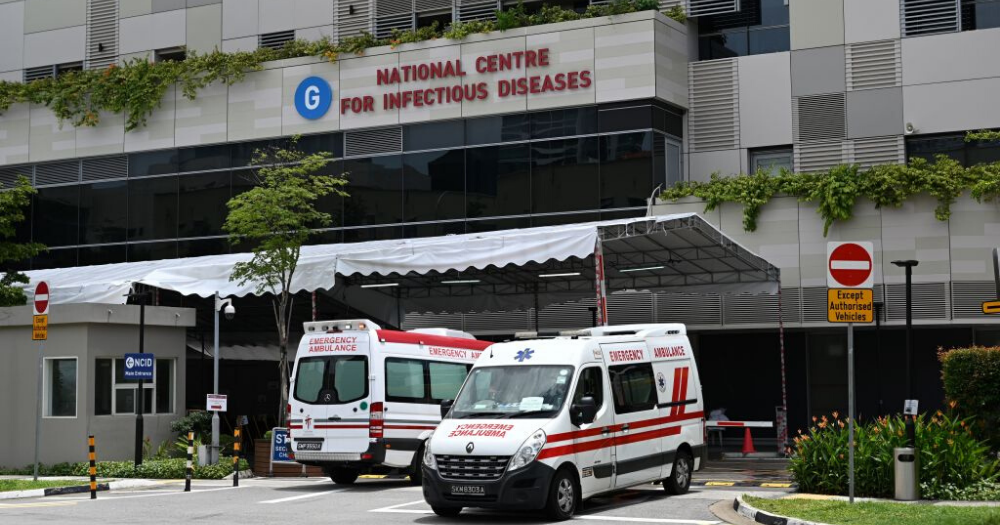Follow us on Telegram for the latest updates: https://t.me/mothershipsg
The Ministry of Health (MOH) has confirmed one local case of monkeypox infection in Singapore in a press release on July 6 night.
MOH said that the patient is a 45-year-old Malaysian man who tested positive for the disease on July 6.
He is currently warded at the National Centre for Infectious Diseases (NCID), and his condition is stable.
The man is not linked to the imported case announced by MOH on June 21.
More details about the local case
The patient first developed lower abdomen skin lesions on June 30.
He subsequently experienced fatigue and swollen lymph nodes on July 2 before developing fever and a sore throat two days later.
He then sought medical attention where initial tests for other possible medical conditions were done, MOH added.
When these tests returned negative, he was subsequently conveyed to NCID on July 6, where he was isolated for further assessment.
Three close contacted identified thus far
As of July 6, three close contacts have been identified, involving the patient's two housemates and one social contact.
All close contacts will be placed on quarantine for 21 days from their last contact with the case.
Contact tracing is ongoing.
What is monkeypox?
According to MOH, monkeypox is typically a self-limiting illness where patients recover within two to four weeks.
Self-limiting illnesses are conditions that can resolve on their own without medication.
However, a small percentage of those infected with monkeypox can fall seriously ill or even die.
Young children, pregnant women and immunocompromised individuals are more vulnerable to complications.
MOH assessed that the risk to the general public remains low as the transmission requires close physical or prolonged contact.
The ministry added that they will continue to monitor the situation closely, and calibrate their response measures as needed.
Top image by Roslan Rahman/AFP via Getty Images.
If you like what you read, follow us on Facebook, Instagram, Twitter and Telegram to get the latest updates.
